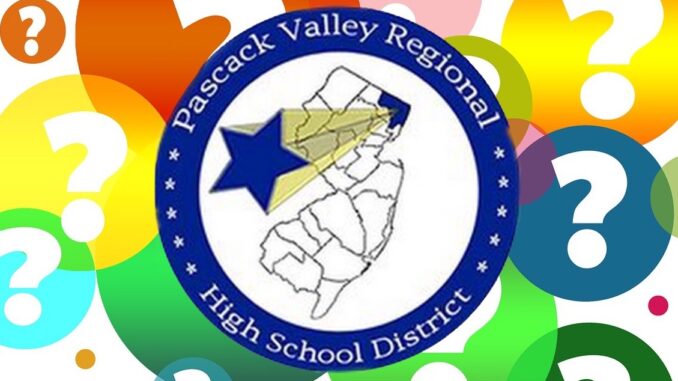
MONTVALE—A new voluntary state high school climate improvement survey will be administered to students early next year with final results likely by spring 2022, said the Pascack Valley Regional High School District’s supervisor of diversity, equity and inclusion at the school board’s Nov. 29 meeting.
Dr. Mark Russo told trustees that the results will be used to make more informed decisions about improving school culture and climate for all students and groups of students. The BOE next meets Dec. 13.
This fall, some parents questioned the board about whether inappropriate, or unwanted surveys, had been given to students at its two high schools without parents’ approval.
This followed an updating of the district’s school survey policy required by a new state law that outlined nine areas of “protected information surveys” that mandated parental notice and approval before questions falling under those categories could be asked of students.
Interim Supt. Daniel Fishbein said then that no questions on prior school climate surveys were covered by protected areas in the new state law. (See “School board hears from parents on revised survey policy,” Pascack Press, Sept. 24, 2021.)
Pascack Hills High School serves students from Montvale and Woodcliff Lake. Pascack Valley High School serves students from Hillsdale and River Vale.
Russo, district supervisor of math, computer science and equity/inclusivity, said the student equity leadership team decided to administer a new school climate survey in 2022. He said the survey was developed jointly by the state Department of Education and Rutgers University.
He said the district administered a school climate survey the past three years as part of its Comprehensive Equity Plan and HIB (Harassment, Intimidation and Bullying) law requirements.
Russo said the student equity team had analyzed prior surveys and data, and looked at three possible survey options, and chose the New Jersey School Climate Improvement Survey.
According to its website, the New Jersey School Climate Improvement (NJ SCI) Survey was developed by the School Climate Transformation Project (SCTP) via a collaboration between Rutgers University and the New Jersey Department of Education (NJDOE).
The NJ SCI Survey is a comprehensive instrument designed to help schools identify climate strengths and needs, and use these data to create strategic plans to improve conditions for teaching and learning.
The website notes, “School climate encompasses the dynamic and diverse feelings, perceptions, and impressions as experienced by school community stakeholders – in other words, the quality or experience of how it feels to be a part of the school community from one’s unique identity and perspective.”
It adds that stakeholders’ perceptions of school climate “can change over time and are shaped by factors at various levels. At the broadest level, national and societal events and conditions can influence policies at the state and local levels.”
It says “the local community context plays a role in shaping conditions in the school building, and within the school, smaller group contexts like classrooms create their own micro-climates and norms of behavior. Each individual person’s experiences of school life are shaped by their unique identity and background, in interaction with other members of the community.”
Russo told trustees that the NJSCI survey, with Rutgers’ assistance, can be “translated into languages that are commonly spoken at homes in our community and assuring us that the survey was developed with knowledge of both current and anticipated local and state board policies in mind.”
He said while all stakeholders will be encouraged to complete the survey, participation is voluntary.
He said that after consultation with the administrative team, the equity team recommended moving forward with N.J. School Climate Improvement Survey. He said the survey improves on the prior survey, citing its ease of use, less dated language, and data analyses possible.
He said a representative from Rutgers University, who helped develop the survey, had made sure that the survey can be “translated into languages that are commonly spoken at homes in our community and assuring us that the survey was developed with knowledge of both current and anticipated local and state board policies in mind.”
He said results will be analyzed by faculty and students on the student equity team and results reported to administrators and the BOE at a meeting in spring 2022.
“Information about the school climate survey will be posted on our website,” said Russo, noting it will include an overview, a link to questions, and information on data security.
All information regarding the surveys was posted following the Nov. 29 presentation to the Board of Education and can be found at pascack.org/district/school_climate_survey.
